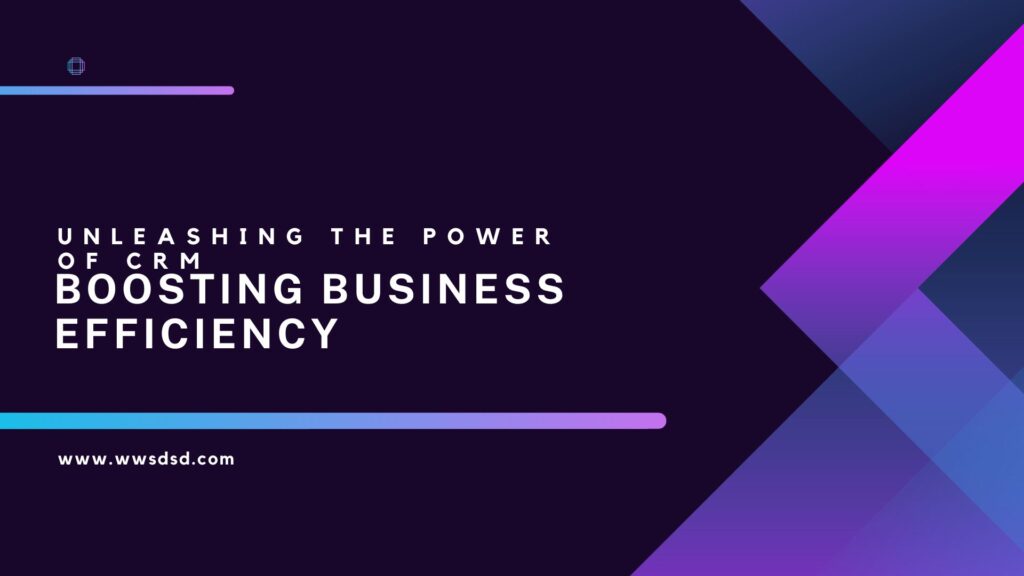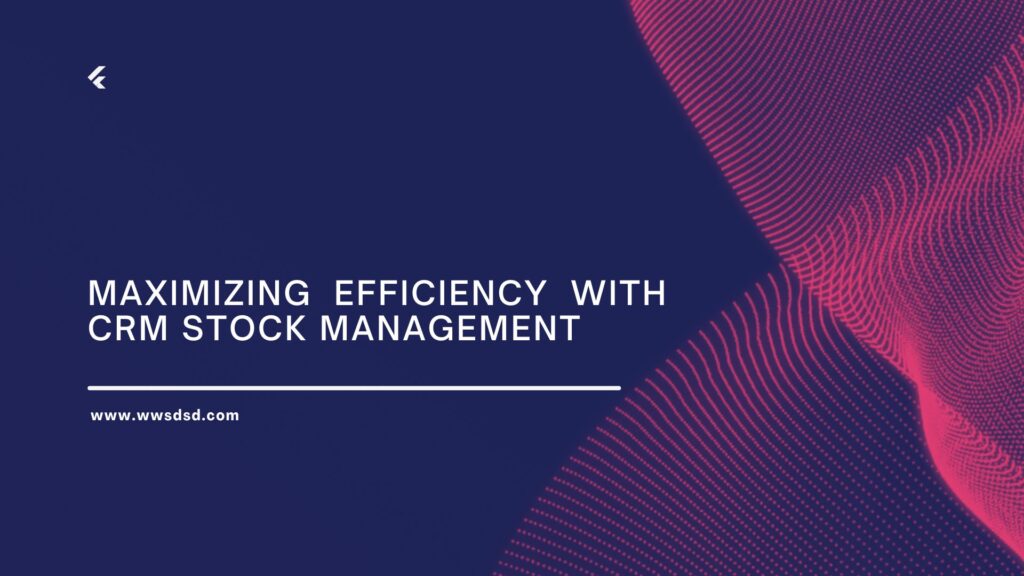Introduction
In today’s fast-paced business world, Customer Relationship Management (CRM) software is a game-changer. But what exactly is CRM software? In simple terms, it’s a tool designed to help businesses manage their interactions with current and potential customers. CRM software consolidates customer information, tracks interactions, and streamlines processes, all with the goal of improving customer relationships and driving sales growth. Let’s dive into how to work CRM software and maximize its potential.
Getting Started with CRM Software
Choosing the Right CRM Software
Selecting the right CRM software can feel like choosing the perfect pair of shoes—it needs to fit well and be comfortable for the long haul. Start by identifying your business needs. Do you need robust sales automation, or are you looking for strong customer support features? Popular CRM options include Salesforce, HubSpot, and Zoho CRM, each offering unique strengths.
Installation and Setup
Once you’ve chosen your CRM, the next step is installation and setup. Most CRM software is cloud-based, meaning you can access it from anywhere with an internet connection. Sign up for an account, follow the setup wizard, and input your company’s basic information. Ensure that you customize the settings to align with your business processes.
Understanding CRM Features
Contact Management
At its core, CRM software is a contact management powerhouse. It allows you to store detailed information about your customers, including contact details, communication history, and purchase preferences. This centralized repository helps you understand your customers better and personalize interactions.
Lead Management
CRM software excels at lead management. It helps you capture leads from various sources, track their progress through the sales funnel, and prioritize follow-ups. This ensures no potential customer falls through the cracks.
Sales Automation
Sales automation is where CRM software truly shines. Automate repetitive tasks like sending follow-up emails, scheduling calls, and updating records. This frees up your sales team to focus on what they do best—selling.
Customer Support
CRM systems often come with built-in customer support tools. Manage support tickets, track customer issues, and provide timely resolutions. This enhances customer satisfaction and loyalty.
Analytics and Reporting
Data is king in the digital age. CRM software provides robust analytics and reporting tools. Track key metrics, generate detailed reports, and gain insights into customer behavior and sales performance. This data-driven approach helps you make informed business decisions.
Customizing Your CRM
Personalizing the Dashboard
Your CRM dashboard is your command center. Customize it to display the most relevant information for your role. Whether it’s sales targets, customer queries, or upcoming tasks, a personalized dashboard keeps you focused and productive.
Adding Custom Fields
Every business is unique, and your CRM should reflect that. Add custom fields to capture information specific to your business. Whether it’s tracking customer preferences or recording industry-specific data, custom fields ensure your CRM is tailored to your needs.
Integrating Third-Party Apps
Maximize your CRM’s potential by integrating it with third-party apps. Whether it’s email marketing tools, social media platforms, or accounting software, integrations streamline your workflows and improve efficiency.
Data Management in CRM
Importing Data
Migrating to a new CRM? Import your existing data to ensure a seamless transition. Most CRM systems offer data import tools that support various file formats. Clean up your data before importing to avoid duplications and inaccuracies.
Data Cleanup and Maintenance
Regular data cleanup is crucial for maintaining CRM accuracy. Remove duplicate entries, update outdated information, and verify contact details. A clean database ensures your CRM remains a reliable resource.
Exporting Data
Need to share data with other teams or tools? Export your CRM data easily. Most CRM software allows you to export data in multiple formats, ensuring compatibility with other systems.
Effective Use of CRM for Sales
Tracking Sales Activities
Keep a close eye on your sales activities with CRM. Track calls, emails, meetings, and tasks. This comprehensive tracking helps you stay organized and ensures you never miss an opportunity.
Managing Sales Pipeline
A well-managed sales pipeline is crucial for sales success. Use your CRM to visualize your sales pipeline, identify bottlenecks, and streamline the sales process. This visibility helps you close deals faster.
Automating Follow-Ups
Consistency is key in sales. Use CRM automation to schedule and send follow-up emails, reminders, and thank-you notes. Automation ensures timely communication, keeping your prospects engaged.
Improving Customer Service with CRM
Creating Support Tickets
Streamline customer support by creating support tickets within your CRM. Track issues from start to resolution, ensuring no customer query goes unanswered. This organized approach improves response times and customer satisfaction.
Managing Customer Interactions
Record all customer interactions in your CRM. This includes emails, phone calls, and in-person meetings. Having a complete interaction history helps you provide personalized and informed customer service.
Using CRM for Feedback and Surveys
Gather valuable customer feedback using CRM-integrated surveys. Analyze feedback to identify areas for improvement and measure customer satisfaction. This proactive approach helps you enhance your products and services.
Marketing Automation in CRM
Email Marketing Campaigns
Leverage CRM for targeted email marketing campaigns. Segment your audience, personalize messages, and track campaign performance. This data-driven approach boosts engagement and conversion rates.
Social Media Integration
Integrate your CRM with social media platforms to track customer interactions and engagement. Monitor social mentions, respond to queries, and nurture relationships across multiple channels.
Tracking Marketing ROI
Measure the effectiveness of your marketing efforts with CRM. Track campaign costs, leads generated, and conversion rates. This helps you allocate resources more effectively and maximize ROI.
Collaborating with CRM
Team Collaboration Tools
Enhance team collaboration with CRM tools. Share customer information, assign tasks, and monitor progress in real-time. This collaborative approach ensures everyone is on the same page.
Assigning Tasks and Roles
Assign tasks and roles within your CRM to streamline workflows. Clearly defined responsibilities ensure accountability and improve productivity.
Internal Communication
Use CRM for internal communication. Share updates, provide feedback, and collaborate on customer strategies. This centralized communication keeps your team aligned and focused.
Advanced CRM Features
AI and Machine Learning
Embrace the future with AI and machine learning in CRM. Predict customer behavior, automate routine tasks, and gain deeper insights with advanced analytics.
Predictive Analytics
Use predictive analytics to forecast sales trends and customer needs. This forward-looking approach helps you stay ahead of the competition and meet customer expectations.
Chatbots and Virtual Assistants
Integrate chatbots and virtual assistants with your CRM for 24/7 customer support. These tools handle routine inquiries, freeing up your team for more complex tasks.
Mobile CRM
Benefits of Mobile CRM
Stay connected on the go with mobile CRM. Access customer information, track activities, and respond to queries from your mobile device. This flexibility enhances productivity and customer service.
Top Mobile CRM Apps
Explore top mobile CRM apps like Salesforce Mobile, HubSpot CRM, and Zoho CRM. These apps offer robust features and seamless integration with their desktop counterparts.
Syncing Mobile and Desktop CRM
Ensure seamless data synchronization between your mobile
and desktop CRM. This real-time sync keeps your information up-to-date and accessible from any device.
CRM Security and Privacy
Data Protection Measures
Protect your CRM data with robust security measures. Use encryption, firewalls, and secure access controls to safeguard sensitive information.
User Permissions and Roles
Define user permissions and roles within your CRM. Restrict access to sensitive information and ensure users only see data relevant to their role.
Compliance with Regulations
Ensure your CRM complies with relevant data protection regulations like GDPR and CCPA. Regular audits and updates help maintain compliance and build customer trust.
Training and Support
Onboarding New Users
Ease new users into your CRM with comprehensive onboarding. Provide training sessions, tutorials, and resources to help them get up to speed quickly.
Accessing Help and Resources
Utilize your CRM’s help and resource center. Access tutorials, FAQs, and customer support to resolve issues and enhance your CRM skills.
Continuous Learning
Stay ahead with continuous learning. Attend webinars, read industry blogs, and participate in CRM communities to keep up with the latest trends and best practices.
Evaluating CRM Performance
Key Performance Indicators (KPIs)
Measure your CRM’s effectiveness with key performance indicators. Track metrics like customer acquisition cost, retention rate, and sales cycle length to gauge success.
Regular Audits and Reviews
Conduct regular CRM audits and reviews. Identify areas for improvement, update processes, and ensure your CRM continues to meet your business needs.
Adapting to Business Needs
Stay flexible and adapt your CRM to evolving business needs. Regular updates and customizations ensure your CRM remains a valuable tool as your business grows.
Conclusion
Working CRM software is like mastering a complex instrument. It takes time, practice, and a keen understanding of its features. But once you’ve got the hang of it, the benefits are immense—streamlined processes, improved customer relationships, and increased sales. As CRM technology continues to evolve, staying updated with the latest features and best practices will keep you ahead of the curve.
FAQs
What is CRM software? CRM software is a tool that helps businesses manage their interactions with current and potential customers, streamlining processes and improving relationships.
How do I choose the right CRM software? Identify your business needs, research popular options like Salesforce and HubSpot, and select one that aligns with your requirements.
Can CRM software improve customer service? Yes, CRM software can enhance customer service by managing support tickets, tracking interactions, and providing timely resolutions.
Is CRM software secure? Most CRM systems offer robust security measures like encryption and secure access controls to protect sensitive data.
How often should I update my CRM data? Regular data updates and maintenance are crucial. Aim to clean and verify your data at least quarterly to ensure accuracy.

